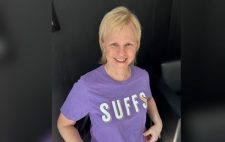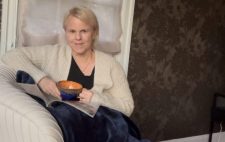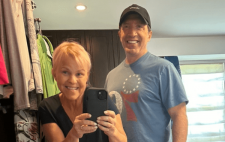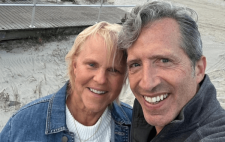For almost two years now, I have served on Camden County’s Addiction Awareness Task Force. Every other month, I sit in this large, sterile room with about 30 people in a giant rectangle of folding chairs. It isn’t like other meetings I attend, but I’m happy I’m there. I don’t say much; I usually spend the 90 minutes just listening.
The people sitting in that rectangle are police chiefs, recovering addicts, politicians, teachers, the varied list goes on. The meetings are open to the public, so some nights we may have high school students or concerned community members attend.
In 2014, before the task force was formed, Camden County Freeholders wanted to address the heroin crisis, so they held an evening summit on addiction and recovery at The Collingswood Ballroom. More than 700 people attended – I don’t think anyone was expecting that large an audience.
I remember a writer who was there telling me how shocking the night was, because person after person stood up during the Q & A to tell their personal story and ask how they could get help for their loved one. Many cried. She was struck by how different all those people were: young and old, professional, blue collar, all ethnicities and representing almost every South Jersey town. For one evening, those 700 people all had one thing in common: a loved one battling addiction.
That night, the task force was formed. And everyone there was asked to join, to come help.
Maybe I consider these meetings so different from others I attend because the people who sit in the rectangle have a passionate, and often personal, reason for being there. Maybe that is why they get so much done. At every meeting, I’m in awe of the reports people give on what action has taken place.
Just last year, all Camden County police departments received training in administering Narcan, the overdose reversal drug, as did all students in the police academy. The task force hosted two memorial candlelight vigils (with 1,000 people attending), created portable medication drop-off boxes for police to take to community events (drop-off boxes get unwanted opioids out of the house) and started something called Rehab Sports, where adults in recovery can join a team and play a sport. Last year was softball. This year, plans are to add basketball.
There’s been all kinds of community educational events, public Narcan classes (anyone can be trained and receive a Narcan kit), a billboard campaign and even a half-day seminar with former Congressman Patrick Kennedy, which I was honored to take part in.
One of the biggest efforts was the start of Operation Save-A-Life (SAL), a project that took a lot of people coming together for months to get it off the ground. If an overdose survivor is taken to the Camden County campuses of Kennedy Health, Virtua, Cooper University Health Care or Our Lady of Lourdes Medical Center, they are offered immediate outpatient addiction treatment – at no cost. The patient just has to say yes. And while many, many people worked tirelessly to create this ground-breaking program, they are painfully aware that getting someone to accept treatment is difficult, even if they’ve been brought back to life after an overdose.
And that is the one thing that stays with me after the hours of listening. People battling addiction are so ill, they may turn down free help minutes after surviving an overdose. Their disease is so powerful, it leaves them powerless.
So that is why a group of people from all walks of life sit on folding chairs, throw out ideas and then go out in the community and get things done. They all know addiction has an unrelenting hold on its victims. Some of them know so well they have a deep heartache to show for it.
But despite the battle, they show up. The meeting gets started. The work begins. And the hope is someone out there will be saved because of it. It’s why I listen.














